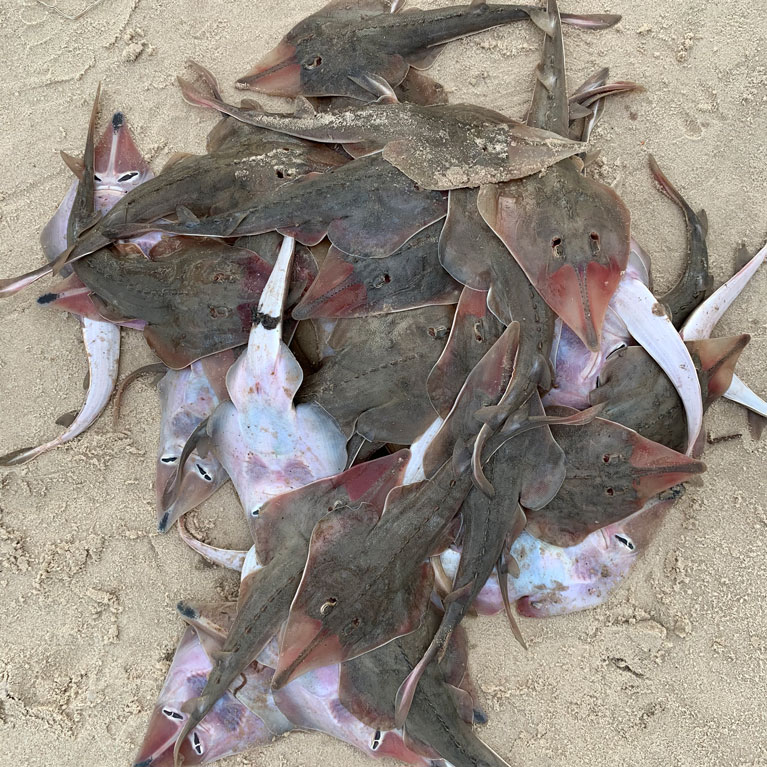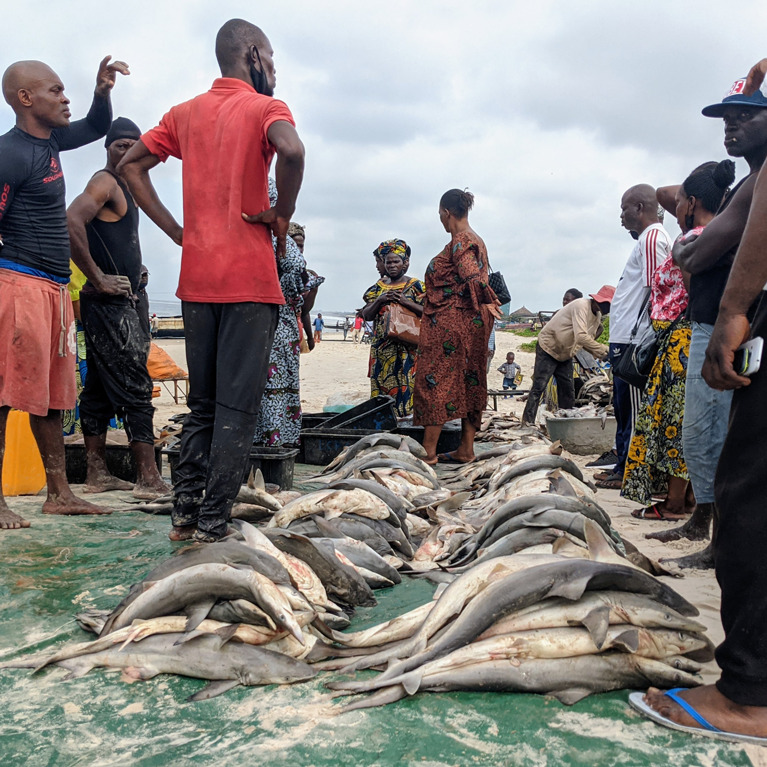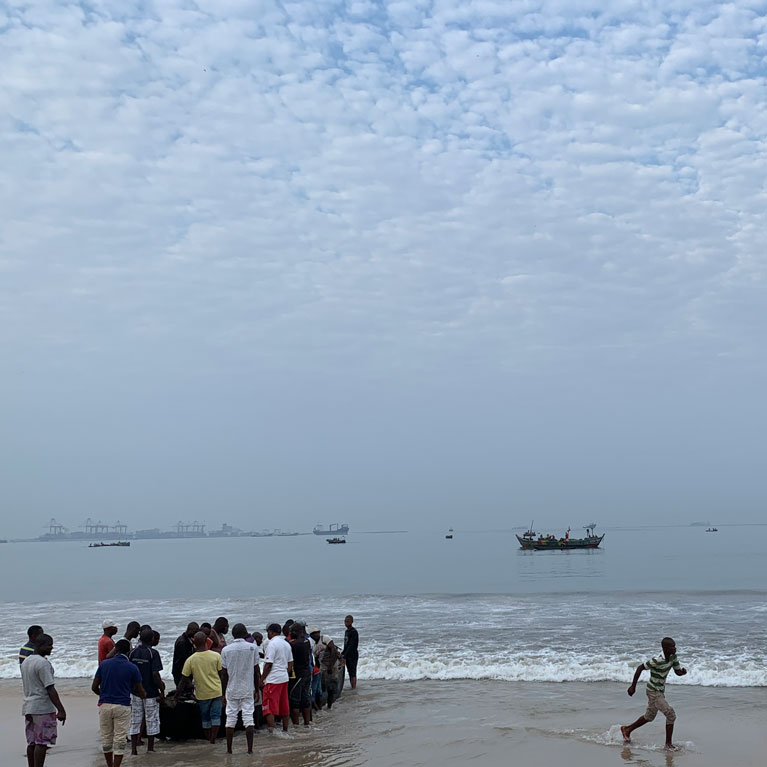Protecting the threatened sharks and rays of the Republic of Congo
Phil is trying to understand the artisanal fishery of the Republic of Congo. He works in the Gulf of Guinea off the coast of Central and West Africa, a productive area with high levels of biodiversity and many sharks and rays. He works closely with local researchers, NGOs, and fishers to collect information needed from landing sites, and equip local researchers and authorities with skills in species identification, field data collection and management. He hopes to understand the catch composition and glean information on species such as wedgefishes and giant guitarfishes that may well be found here.
My fascination with the ocean is long standing, sparked by watching documentaries with my grandfather and wondering how something that covers so much of the earth can have so little known about it. This led to an interest in scuba diving to get first-hand experience of the underwater world and the pursuit of a career in marine ecology. I was awarded a BSc in marine biology from Swansea University, then after working on several marine conservation projects I obtained my MSc in conservation and biodiversity from the University of Exeter. I was able to complete my thesis in...



Protecting highly threatened sharks and rays in the coastal waters of Republic of the Congo
To gather information about the composition of sharks and rays in the artisanal fisheries in the Republic of the Congo, to increase our knowledge base on these taxa and to apply informed and appropriate suggestions for conservation management.
Wedgefish and giant guitarfish populations are in serious trouble and form a large part of landed catch in the Republic of the Congo. This may suggest that this region is a potential stronghold for these species but they need effective management. We aim to gather critical biological and ecological information about these species, including distribution, seasonality and occurrence to raise awareness about them and influence planned government reviews in order to support the protection of endangered sharks and rays.
One quarter of sharks and rays are considered threatened with extinction due to overfishing, with the 16 families of giant guitarfish and wedgefish regarded as the most threatened marine fish families in the world. Life-history traits make these groups particularly susceptible to exploitation, especially when little is known about capture rates and the size of individuals. The Republic of the Congo is located on the Atlantic coast of central Africa and small-scale fisheries regularly catch sharks and rays. In 2001 a ban on shark fishing was issued to protect them. After 14 months this ban was lifted so that a species list of sharks and rays could be drawn up and a National Plan of Action could be developed. Due to a lack of resources, however, no official catch statistics were collected and shark fishing, which provides a regular source of income and employment and plays an important role in local food security, has continued unmonitored. In 2018 the government requested help to address this situation and enhance capacity and national awareness. This led to a one-year pilot study in Songolo, the largest landing site in the Republic of the Congo. It hosts an estimated 400 artisanal boats, about 60% of the artisanal fleet. The results of the pilot study are stark – vast quantities of individual sharks and rays were observed at Songolo, the Republic of the Congo during the twelve months of 2019, consisting of many species of conservation concern, landed in every month of the year. With the results of our research we aim to inform the development of a robust management plan for sharks, contribute to national laws governing fisheries and provide data about critical habitats to support initiatives to increase the extent of marine protected areas.
This project aims to support current efforts to increase the protection of marine biodiversity in the Republic of the Congo by establishing a long-term baseline of the seasonality, composition, size and sex of sharks and rays captured in small-scale fisheries. Overall, we aim to enhance institutional capacity, awareness and knowledge of the composition, distribution and habitat preferences of highly threatened sharks and rays, with a specific focus on the African wedgefish and giant guitarfish.

